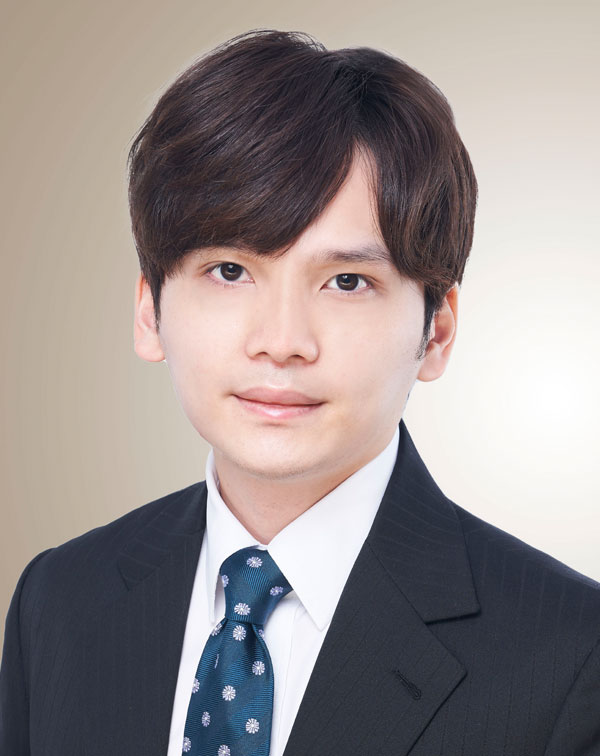October 2025
Legislative Yuan Passes Third Reading of the Amendments to the Act for the Recruitment and Employment of Foreign Professionals (Taiwan)
In order to strengthen the recruitment and employment of foreign professionals and enhance national competitiveness, the Legislative Yuan passed amendments to the Act for the Recruitment and Employment of Foreign Professionals (hereinafter referred to as “the Act”) on August 29, 2025, after its third reading. The amendments were promulgated by the President on September 24, 2025, with the effective date to be determined by the Executive Yuan.
This amendment represents a major overhaul, introducing numerous new measures for attracting and retaining foreign talent and significantly relaxing visa and work permit restrictions. Key innovations include: a personalized work permit for graduates of the world’s top 200 universities (Article 11), exemption from applying for a work permit during the extended residence period for recent graduates (Article 12), an extended-stay visa for digital nomads (Article 14), and the relaxation of work rights for spouses of certain foreign special professionals (Article 15). In terms of social welfare and protection, the scope of the Act has been expanded to cover the Labor Pension Act (Article 24) and the Employment Insurance Act (Article 25) for foreign professionals. Additionally, under certain conditions, foreigners who have obtained permanent residency may now access long-term care services (Article 29) and enjoy protections under the People with Disabilities Rights Protection Act (Article 28). These changes demonstrate the government’s determination to optimize the working and living environment for foreign professionals in Taiwan.
This round of amendments holds great significance for Taiwan’s efforts to attract international talent, address industrial manpower shortages, and enhance global competitiveness. Among the various reforms, the relaxation of visa and work permit rules will have the widest-reaching impact. Key provisions are summarized below:
1. Job-Seeking Visa for Graduates from the World’s Top 200 Universities (Article 11)
To attract top talent from leading global universities, the Act introduces Article 11, inspired by the United Kingdom’s High Potential Individual (HPI) Visa. Under this provision, any foreign national who has obtained a bachelor’s degree or higher from one of the world’s top 200 universities, as announced by the Ministry of Education within the past 5 years may apply directly to the Ministry of Labor for permission to engage in professional work in Taiwan.
This “personalized work permit” does not require employer sponsorship and is valid for up to two years without renewal. The system allows elite graduates to reside legally and work professionally in Taiwan while seeking suitable employment, thereby strengthening Taiwan’s competitiveness in the global talent market.
2. Exemption from Work Permit Application for Recent Foreign Graduates During Extended Residence Period (Article 12)
Taiwan has long implemented a point-based system for foreign, overseas Chinese, and other ethnic Chinese students (hereinafter referred to as “foreign graduates”) who have obtained an associate degree or higher from domestic colleges or universities and wish to work in specialized or technical positions.
According to the Qualifications and Criteria Standards for Foreigners Undertaking the Jobs Specified Under Subparagraph 1 to 6 of Paragraph 1 of Article 46 of the Employment Service Act (hereinafter “the Review Standards”), those who accumulate 70 or more points upon review by the competent authority are exempt from the restrictions in Article 5 of the Review Standards (such as requiring certain certificates, a master’s degree, or specific years of work experience). They may engage in professional or technical work in Taiwan if they hold a bachelor’s degree or an associate degree in a designated field.
In recent years, the government has continued to relax regulations regarding foreign graduates remaining in Taiwan for employment. On August 26, 2024, the Workforce Development Agency of the Ministry of Labor amended the Regulations on the Permission and Administration of the Employment of Foreign Workers, allowing foreign graduates to work in the hospitality industry to address long-standing labor shortages.
Building on this, Article 12 of the Act now further removes field-of-work restrictions for recent graduates with an associate degree or higher. Foreign graduates who, before the expiration of their current residence period, apply for an extension of stay to the National Immigration Agency under Article 11 of the Regulations Governing Visiting, Residency, and Permanent Residency of Aliens, and receive approval, may work in Taiwan during the extended residence period (up to 2 years in total) without applying for a separate work permit.
3. Extended-Stay Visa for Digital Nomads (Article 14)
To respond to the rise of digital nomadism, Article 14 introduces a new extended-stay visa system for digital nomads. Under this provision, foreign professionals who engage in remote digital work not involving the provision of services to Taiwanese entities or employers, and who meet certain criteria announced by the competent authority, may apply—together with their spouse and first-degree lineal relatives—to the Ministry of Foreign Affairs or Taiwan’s overseas missions for a 6-month multiple-entry stay visa.
The visa allows a 6-month stay without restrictions on extensions or other conditions. Before the expiration of the stay period, applicants may apply to the National Immigration Agency for extensions, each allowing a total stay of up to 2 years.
This regulation is modeled after similar digital nomad visa programs in countries such as Japan, South Korea, and Malaysia. By extending the maximum stay from 6 months to 2 years, Taiwan enhances its attractiveness to international digital nomads.
This amendment represents a major overhaul, introducing numerous new measures for attracting and retaining foreign talent and significantly relaxing visa and work permit restrictions. Key innovations include: a personalized work permit for graduates of the world’s top 200 universities (Article 11), exemption from applying for a work permit during the extended residence period for recent graduates (Article 12), an extended-stay visa for digital nomads (Article 14), and the relaxation of work rights for spouses of certain foreign special professionals (Article 15). In terms of social welfare and protection, the scope of the Act has been expanded to cover the Labor Pension Act (Article 24) and the Employment Insurance Act (Article 25) for foreign professionals. Additionally, under certain conditions, foreigners who have obtained permanent residency may now access long-term care services (Article 29) and enjoy protections under the People with Disabilities Rights Protection Act (Article 28). These changes demonstrate the government’s determination to optimize the working and living environment for foreign professionals in Taiwan.
This round of amendments holds great significance for Taiwan’s efforts to attract international talent, address industrial manpower shortages, and enhance global competitiveness. Among the various reforms, the relaxation of visa and work permit rules will have the widest-reaching impact. Key provisions are summarized below:
1. Job-Seeking Visa for Graduates from the World’s Top 200 Universities (Article 11)
To attract top talent from leading global universities, the Act introduces Article 11, inspired by the United Kingdom’s High Potential Individual (HPI) Visa. Under this provision, any foreign national who has obtained a bachelor’s degree or higher from one of the world’s top 200 universities, as announced by the Ministry of Education within the past 5 years may apply directly to the Ministry of Labor for permission to engage in professional work in Taiwan.
This “personalized work permit” does not require employer sponsorship and is valid for up to two years without renewal. The system allows elite graduates to reside legally and work professionally in Taiwan while seeking suitable employment, thereby strengthening Taiwan’s competitiveness in the global talent market.
2. Exemption from Work Permit Application for Recent Foreign Graduates During Extended Residence Period (Article 12)
Taiwan has long implemented a point-based system for foreign, overseas Chinese, and other ethnic Chinese students (hereinafter referred to as “foreign graduates”) who have obtained an associate degree or higher from domestic colleges or universities and wish to work in specialized or technical positions.
According to the Qualifications and Criteria Standards for Foreigners Undertaking the Jobs Specified Under Subparagraph 1 to 6 of Paragraph 1 of Article 46 of the Employment Service Act (hereinafter “the Review Standards”), those who accumulate 70 or more points upon review by the competent authority are exempt from the restrictions in Article 5 of the Review Standards (such as requiring certain certificates, a master’s degree, or specific years of work experience). They may engage in professional or technical work in Taiwan if they hold a bachelor’s degree or an associate degree in a designated field.
In recent years, the government has continued to relax regulations regarding foreign graduates remaining in Taiwan for employment. On August 26, 2024, the Workforce Development Agency of the Ministry of Labor amended the Regulations on the Permission and Administration of the Employment of Foreign Workers, allowing foreign graduates to work in the hospitality industry to address long-standing labor shortages.
Building on this, Article 12 of the Act now further removes field-of-work restrictions for recent graduates with an associate degree or higher. Foreign graduates who, before the expiration of their current residence period, apply for an extension of stay to the National Immigration Agency under Article 11 of the Regulations Governing Visiting, Residency, and Permanent Residency of Aliens, and receive approval, may work in Taiwan during the extended residence period (up to 2 years in total) without applying for a separate work permit.
3. Extended-Stay Visa for Digital Nomads (Article 14)
To respond to the rise of digital nomadism, Article 14 introduces a new extended-stay visa system for digital nomads. Under this provision, foreign professionals who engage in remote digital work not involving the provision of services to Taiwanese entities or employers, and who meet certain criteria announced by the competent authority, may apply—together with their spouse and first-degree lineal relatives—to the Ministry of Foreign Affairs or Taiwan’s overseas missions for a 6-month multiple-entry stay visa.
The visa allows a 6-month stay without restrictions on extensions or other conditions. Before the expiration of the stay period, applicants may apply to the National Immigration Agency for extensions, each allowing a total stay of up to 2 years.
This regulation is modeled after similar digital nomad visa programs in countries such as Japan, South Korea, and Malaysia. By extending the maximum stay from 6 months to 2 years, Taiwan enhances its attractiveness to international digital nomads.




